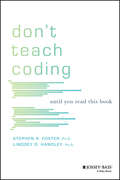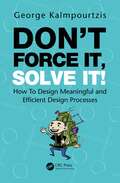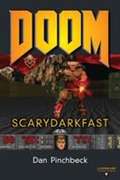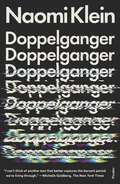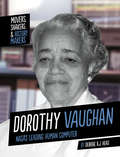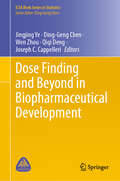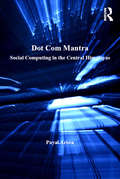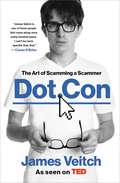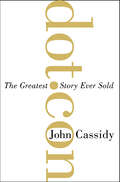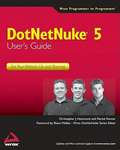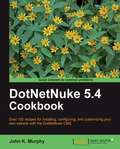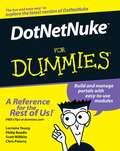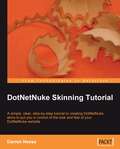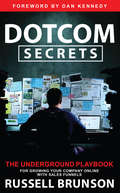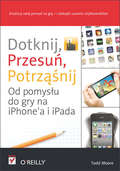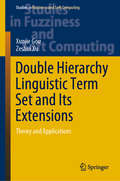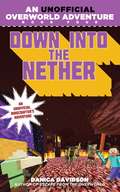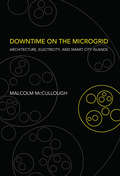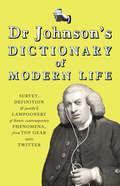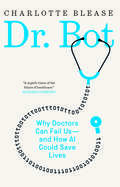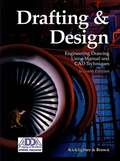- Table View
- List View
Don't Talk to Strangers Online (Internet Dos & Don'ts)
by Shannon MillerThis book briefs you on online safety and warns against talking to strangers online.
Don't Teach Coding: Until You Read This Book
by Lindsey D. Handley Stephen R. FosterThe definitive resource for understanding what coding is, designed for educators and parents Even though the vast majority of teachers, parents, and students understand the importance of computer science in the 21st century, many struggle to find appropriate educational resources. Don't Teach Coding: Until You Read This Book fills a gap in current knowledge by explaining exactly what coding is and addressing why and how to teach the subject. Providing a historically grounded, philosophically sensitive description of computer coding, this book helps readers understand the best practices for teaching computer science to their students and their children. The authors, experts in teaching computer sciences to students of all ages, offer practical insights on whether coding is a field for everyone, as opposed to a field reserved for specialists. This innovative book provides an overview of recent scientific research on how the brain learns coding, and features practical exercises that strengthen coding skills. Clear, straightforward chapters discuss a broad range of questions using principles of computer science, such as why we should teach students to code and is coding a science, engineering, technology, mathematics, or language? Helping readers understand the principles and issues of coding education, this book: Helps those with no previous background in computer science education understand the questions and debates within the field Explores the history of computer science education and its influence on the present Views teaching practices through a computational lens Addresses why many schools fail to teach computer science adequately Explains contemporary issues in computer science such as the language wars and trends that equate coding with essential life skills like reading and writing Don't Teach Coding: Until You Read This Book is a valuable resource for K-12 educators in computer science education and parents wishing to understand the field to help chart their children’s education path.
Don’t Force It, Solve It!: How To Design Meaningful and Efficient Design Processes
by George Kalmpourtzis"Knowing various frameworks and methodologies is crucial.… This book takes you one step further by transforming individuals or teams into adaptable problem-solving powerhouses." George Ketsiakidis, Design Researcher, Shanghai Jiao Tong University "George is a master of design process thinking, and it comes out in every word of his writing." Ryan Gerber, Founder, Quest Labs It’s not how much time we spend on design that impacts product and service success: it’s whether that time has been spent on solving the right problems. The field of design, with a greater focus on user-centered design, steadily acquires a central position on the work of product design teams. From large corporate environments to startups, multidisciplinary teams of developers, designers, project managers, and product managers need to find ways to understand each other’s needs, overcome obstacles, communicate efficiently, and perform, creating products that satisfy their users’ needs. In an era when the main differentiating factor between products are the teams that created them, George Kalmpourtzis’ Don’t Force It, Solve It!: How To Design Meaningful and Efficient Design Processes is the perfect roadmap for navigating the twisting paths of project management and user-centered design. KEY FEATURES: • This book aims at helping software teams work more efficiently by setting up their own design processes. • For organizations, this book helps decode the design processes, allowing them to deliver experiences that address the real problems of their audiences. • This book offers a combination of theory and practice that will help its readers understand how to design efficient processes and apply this knowledge in their own work. • This book includes many insights in the form of colorful doodles. George Kalmpourtzis is an award-winning User Experience & Learning Experience Consultant and Game Designer. Finding himself between the fields of educational technology, design, and game studies, he has been founder, C-level stakeholder, director, and board member of several design studios, startups, and consulting agencies.
Doom: Scarydarkfast
by Dan PinchbeckIn December 1993, gaming changed forever. id Software's seminal shooter DOOM was released, and it shook the foundations of the medium. Daniel Pinchbeck brings together the complete story of DOOM for the first time. This book takes a look at the early days of first-person gaming and the video game studio system. It discusses the prototypes and the groundbreaking technology that drove the game forward and offers a detailed analysis of gameplay and level design. Pinchbeck also examines DOOM's contributions to wider gaming culture, such as online multiplay and the modding community, and the first-person gaming genre, focusing on DOOM's status as a foundational title and the development of the genre since 1993. Pinchbeck draws extensively from primary data: from the game itself, from the massive fan culture surrounding the title, and from interviews with the developers who made it. This book is not only the definitive work on DOOM but a snapshot of a period of gaming history, a manifesto for a development ethos, and a celebration of game culture at its best.
Doorbells, Danger, and Dead Batteries
by Steve PortigalUser research war stories are personal accounts of the challenges researchers encounter out in the field, where mishaps are inevitable, yet incredibly instructive. Doorbells, Danger, and Dead Batteries is a diverse compilation of war stories that range from comically bizarre to astonishingly tragic, tied together with valuable lessons from expert user researcher Steve Portigal.
Doppelganger: A Trip into the Mirror World
by Naomi Klein#1 NATIONAL BESTELLERShortlisted for the 2024 Women's Prize for Non-Fiction Shortlisted for the 2024 Writers&’ PrizeFinalist for the 2024 National Book Critics Circle Award for CriticismA New York Times Notable Book of 2023Vulture&’s #1 Book of 2023A Guardian Best Ideas Book of 2023Named a Best Book of the Year by The Globe and Mail • TIME • Esquire • Slate • Harpers&’ Bazaar • The Times • The New Republic • Toronto Star • CBC • The Boston Globe • Electric Lit What if you woke up one morning and found you'd acquired another self—a double who was almost you and yet not you at all? What if that double shared many of your preoccupations but, in a twisted, upside-down way, furthered the very causes you'd devoted your life to fighting against?Not long ago, Naomi Klein had just such an experience—she was confronted with a doppelganger whose views she found abhorrent but whose name and public persona were similar enough to her own that many people confused her for the other. For a vertiginous moment, she lost her bearings. And then she got interested, in a reality that seems to be warping and doubling like a digital hall of mirrors. It&’s happening in our politics as New Age wellness entrepreneurs turned anti-vaxxers find common cause with fire-breathing far right propagandists (all in the name of protecting &“the children&”). It&’s happening in our culture as AI gobbles up music, paintings, fiction and everything in between and spits out imitations that threaten to overtake the originals. And it&’s happening to many of us as individuals as we create digital doubles of ourselves, filtered and curated just so for all the other duplicates to see. An award-winning journalist, bestselling author, public intellectual and activist, Naomi Klein writes books that orient us in our time. She has offered essential accounts of what branding, austerity, and climate profiteering have done to our societies and souls. Now, as liberal democracies teeter on the edge, Klein takes aim at absurdist authoritarianism, using a keen sense of the ridiculous to face the doubles that haunt us. Part tragicomic memoir, part chilling reportage and cobweb-clearing analysis, Doppelganger invites readers on a wild ride, smashing through the mirror world, charting a path beyond despair towards true solidarity.
Doppelganger: A Trip into the Mirror World
by Naomi KleinA finalist for the 2023 National Book Critics Circle AwardWinner of the Women's Prize for NonfictionNEW YORK TIMES BESTSELLER | National Indie BestsellerA New York Times notable book of 2023 | Vulture’s #1 book of 2023One of Slate’s ten best books of 2023 | A Guardian best ideas book of 2023 | One of Time’s ten best books of 2023 | Winner of the Pacific Northwest Book Award“I’ve been raving about Naomi Klein’s Doppelganger . . . I can’t think of another text that better captures the berserk period we’re living through.” —Michelle Goldberg, The New York Times“If I had to name a single book that makes sense of these last few dark years, it would be this one.” —Katie Roiphe, The New York Times Book Review (Editors’ Choice)What if you woke up one morning and found you’d acquired another self—a double who was almost you and yet not you at all? What if that double shared many of your preoccupations but, in a twisted, upside-down way, furthered the very causes you’d devoted your life to fighting against?Not long ago, the celebrated activist and public intellectual Naomi Klein had just such an experience—she was confronted with a doppelganger whose views she found abhorrent but whose name and public persona were sufficiently similar to her own that many people got confused about who was who. Destabilized, she lost her bearings, until she began to understand the experience as one manifestation of a strangeness many of us have come to know but struggle to define: AI-generated text is blurring the line between genuine and spurious communication; New Age wellness entrepreneurs turned anti-vaxxers are scrambling familiar political allegiances of left and right; and liberal democracies are teetering on the edge of absurdist authoritarianism, even as the oceans rise. Under such conditions, reality itself seems to have become unmoored. Is there a cure for our moment of collective vertigo?Naomi Klein is one of our most trenchant and influential social critics, an essential analyst of what branding, austerity, and climate profiteering have done to our societies and souls. Here she turns her gaze inward to our psychic landscapes, and outward to the possibilities for building hope amid intersecting economic, medical, and political crises. With the assistance of Sigmund Freud, Jordan Peele, Alfred Hitchcock, and bell hooks, among other accomplices, Klein uses wry humor and a keen sense of the ridiculous to face the strange doubles that haunt us—and that have come to feel as intimate and proximate as a warped reflection in the mirror.Combining comic memoir with chilling reportage and cobweb-clearing analysis, Klein seeks to smash that mirror and chart a path beyond despair. Doppelganger asks: What do we neglect as we polish and perfect our digital reflections? Is it possible to dispose of our doubles and overcome the pathologies of a culture of multiplication? Can we create a politics of collective care and undertake a true reckoning with historical crimes? The result is a revelatory treatment of the way many of us think and feel now—and an intellectual adventure story for our times.
Doppelganger: A Trip into the Mirror World
by Naomi Klein#1 NATIONAL BESTELLER • Winner of the 2024 Women's Prize for Non-Fiction • Winner of the 2024 Vine National Canadian Jewish Book Award for Non-Fiction • Finalist for the 2024 National Book Critics Circle Award for Criticism • Shortlisted for the 2024 Hubert Evans Non-Fiction Prize • A New York Times Notable Book of 2023 • Vulture&’s #1 Book of 2023 • A Guardian Best Ideas Book of 2023What if you woke up one morning and found you'd acquired another self—a double who was almost you and yet not you at all? What if that double shared many of your preoccupations but, in a twisted, upside-down way, furthered the very causes you'd devoted your life to fighting against?Not long ago, Naomi Klein had just such an experience—she was confronted with a doppelganger whose views she found abhorrent but whose name and public persona were similar enough to her own that many people confused her for the other. For a vertiginous moment, she lost her bearings. And then she got interested, in a reality that seems to be warping and doubling like a digital hall of mirrors. It&’s happening in our politics as New Age wellness entrepreneurs turned anti-vaxxers find common cause with fire-breathing far right propagandists (all in the name of protecting &“the children&”). It&’s happening in our culture as AI gobbles up music, paintings, fiction and everything in between and spits out imitations that threaten to overtake the originals. And it&’s happening to many of us as individuals as we create digital doubles of ourselves, filtered and curated just so for all the other duplicates to see. An award-winning journalist, bestselling author, public intellectual and activist, Naomi Klein writes books that orient us in our time. She has offered essential accounts of what branding, austerity, and climate profiteering have done to our societies and souls. Now, as liberal democracies teeter on the edge, Klein takes aim at absurdist authoritarianism, using a keen sense of the ridiculous to face the doubles that haunt us. Part tragicomic memoir, part chilling reportage and cobweb-clearing analysis, Doppelganger invites readers on a wild ride, smashing through the mirror world, charting a path beyond despair towards true solidarity.
Dorothy Vaughan: NASA's Leading Human Computer (Movers, Shakers, and History Makers)
by Deirdre R. HeadIn 1949, Dorothy Vaughan became the first African American woman to lead a team at NASA's Langley Research Center. Her work as a mathematician was an important part of helping the United States explore space. Learn more about Vaughan's life as a famous mathematician!
Dose Finding and Beyond in Biopharmaceutical Development (ICSA Book Series in Statistics)
by Ding-Geng Chen Joseph C. Cappelleri Wen Zhou Jingjing Ye Qiqi DengThis book covers topics in 2 parts: 1) Review of FDA Guidance, 2) Novel Designs and Analyses. While covering basic principles of dose finding, this book details advancements made in drug development. Finding the right dose(s) is one of the most important objectives in new drug development. In Phase I clinical development, one of the objectives is to escalate test doses from low to high. The low doses should be safe, then escalate up to the maximally tolerable dose (MTD). Phase Ⅱ clinical trials then lower test doses to the minimal efficacious dose (MinED). Dose range of a study drug can be thought of as the doses between MinED and MTD. From this dose range, one or a few doses are selected for Phase Ⅲ confirmation. In practice, dose finding is a very difficult in every phase of clinical development for new drugs. The editors brought distinguished researchers and practitioners in biopharmaceuticals and universities, to discuss the statistical procedures, useful methods, and their novel applications in dose finding. The chapters in the book present emerging topics in dose-finding and related interdisciplinary areas. This timely book is a valuable resource to stimulate the development of this growing and exciting field in drug development.
Dot Com Mantra: Social Computing in the Central Himalayas (Voices In Development Management Ser.)
by Payal AroraBillions of dollars are being spent nationally and globally on providing computing access to digitally disadvantaged groups and cultures with an expectation that computers and the Internet can lead to higher socio-economic mobility. This ethnographic study of social computing in the Central Himalayas, India, investigates alternative social practices with new technologies and media amongst a population that is for the most part undocumented. In doing so, this book offers fresh and critical perspectives in areas of contemporary debate: informal learning with computers, cyberleisure, gender access and empowerment, digital intermediaries, and glocalization of information and media.
Dot Con: The Art of Scamming a Scammer
by James VeitchFrom viral comedy sensation James Veitch (as seen on TED, Conan, and The Tonight Show with Jimmy Fallon) comes a collection of laugh-out-loud funny exchanges with email scammers.The Nigerian prince eager to fork over his inheritance, the family friend stranded unexpectedly in Norway, the lonely Russian beauty looking for love . . . they spam our inboxes with their hapless pleas for help, money, and your social security number. In Dot Con, Veitch finally answers the question: what would happen if you replied?Suspicious emails pop up in our inboxes and our first instinct is to delete unopened. But what if you responded to the deposed princess begging for money in your Gmail? Veitch dives into the underbelly of our absurd email scam culture, playing the scammers at their own game, and these are the surprising, bizarre, and hilarious results.
Dot.Con: The Greatest Story Ever Sold
by John CassidyThe Internet stock bubble wasn't just about goggle-eyed day traderstrying to get rich on the Nasdaq and goateed twenty-five-year-olds playing wannabe Bill Gates. It was also about an America that believed it had discovered the secret of eternal prosperity: it said something about all of us, and what we thought about ourselves, as the twenty-first century dawned. John Cassidy's Dot.con brings this tumultuous episode to life. Moving from the Cold War Pentagon to Silicon Valley to Wall Street and into the homes of millions of Americans, Cassidy tells the story of the great boom and bust in an authoritative and entertaining narrative. Featuring all the iconic figures of the Internet era -- Marc Andreessen, Jeff Bezos, Steve Case, Alan Greenspan, and many others -- and with a new Afterword on the aftermath of the bust, Dot.con is a panoramic and stirring account of human greed and gullibility.
DotNetNuke 5 User's Guide
by Shaun Walker Patrick Renner Christopher J. HammondAn authoritative introduction to implementing DotNetNuke Web sites, by experienced DotNetNuke implementers and trainersAn impressive author team shows you how to easily build Web sites with a variety of content features - no programming experience required.If your goal is to build the site without worrying about the programming behind it, DotNetNuke 5 User's Guide gives you exactly what you need. After developing a groundwork in the DotNetNuke framework and DotNetNuke as a content management system, it provides installation and administration information. Then it takes you step by step through a variety of use cases, implementation strategies, and configuration decisions for various sites.Introduces the benefits of content management systems, open source, how DotNetNuke functions as a content management system, and DotNetNuke modules, pages, and skinsExplains the installation process, options for installing DotNetNuke, and requirements, as well as administration functionality and content management fundamentals for DNN sitesExamines different use cases, implementation strategies, and configuration decisionsShows how to develop and implement a personal Web site, a team or club community, a small business site, and an enterprise solutionLooks at various advanced topics relevant to all use cases, ranging from advanced installation options to detailed administrative featuresIncludes a foreword by Shaun Walker, creator of DotNetNuke and Wrox DotnetNuke series editorDotNetNuke 5 User's Guide provides the tools you need to put this valuable technology to work.
DotNetNuke 5.4 Cookbook
by John K MurphyThis is a cookbook: each chapter contains a selection of useful self-contained recipes. The book begins with simple recipes for installing and configuring DotNetNuke then offers recipes for using out-of-the-box modules before delving into custom module and skin development. If you are a .NET developer with beginner to intermediate knowledge of Visual Basic or C# and want to develop a website/CMS using DotNetNuke, this book is for you. Familiarity with DNN operation, CSS, and basic web development (ASP.NET) skills is required.
DotNetNuke For Dummies
by Lorraine Young Philip Beadle Scott Willhite Chris PaterraDo you want to develop Web sites without the help of a programmer? Lucky for you there's DotNetNuke, a content management system that allows you to build and maintain dynamic Web sites just by using a Web browser. DotNetNuke For Dummies helps you get down to business and shows you how to create a user-friendly Web site. You'll find out how you can build and manage a flexible, versatile site with all the advantages an open-source application offers, use convenient modules, build a community, and save some money at the same time. This plain-English guide lets you discover how to: Install, run, and troubleshoot DotNetNuke Change and customize portal settings Add and manage pages on your site Make your site look professional Deliver contents with Text/HTML Add news feeds, online surveys, and banners Interact with visitors through blogging, feedback comments, and forums Create an e-business Customize the look of your site with exciting components This book features cool new modules that will meet every Web site's need, both commercial and personal. With DotNetNuke For Dummies, you'll get up to speed with this wonderful online tool and create your own corner of the World Wide Web!
DotNetNuke Skinning Tutorial
by Darren NeeseDesigned as a tutorial for beginners to DotNetNuke skinning, this book is packed with practical steps for you to try. Written in a clear, easy-to-read style this book will guide you through the most important tasks of working with DotNetNuke skins. This book is for web designers or developers who want to customize DNN sites, to bring a specific look and feel to them, and create more attractive user interfaces. This book is ideal for beginners to DotNetNuke skinning. You will need to know about the general operation of DotNetNuke and also have some familiarity with creating web pages. Familiarity with CSS and basic ASP.NET would be a bonus.
Dotcom Secrets: The Underground Playbook for Growing Your Company Online with Sales Funnels
by Russell BrunsonMaster the science of funnel building to grow your company online with sales funnels in this updated edition from the $100M entrepreneur and co-founder of the software company ClickFunnels.DotCom Secrets is not just another "how-to" book on internet marketing. This book is not about getting more traffic to your website--yet the secrets you'll learn will help you to get exponentially more traffic than ever before.This book is not about increasing your conversions--yet these secrets will increase your conversions more than any headline tweak or split test you could ever hope to make.Low traffic or low conversion rates are symptoms of a much greater problem that's a little harder to see (that's the bad news), but a lot easier to fix (that's the good news).What most businesses really have is a "funnel" problem. Your funnel is the online process that you take your potential customers through to turn them into actual customers. Everyone has a funnel (even if they don't realize it), and yours is either bringing more customers to you, or repelling them.In this updated edition, Russell Brunson, CEO and co-founder of the multimillion-dollar software company ClickFunnels, reveals his greatest secrets to generating leads and selling products and services after running tens of thousands of his own split tests.Stop repelling potential customers. Implement these processes, funnels, frameworks, and scripts now so you can fix your funnel, turn it into the most profitable member of your team, and grow your company online.
Dotknij, przesu?, potrz??nij. Od pomys?u do gry na iPhone'a i iPada
by Todd MooreZrealizuj swój pomys? na gr? i odnie? sukces!Nawet je?li rynek gier i aplikacji mobilnych nie prze?cignš? jeszcze rynku tych produktów dla komputerów osobistych, to wkrótce to zrobi. Miliony u?ytkowników, przyst?pne ceny oraz powszechny dost?p do ekranów dotykowych, GPS i internetu — wszystko to sprawia, ?e gry na iPhone’a czy iPada sš cz?sto o wiele bardziej atrakcyjne ni? ich odpowiedniki przeznaczone na zwyk?e komputery. Najwa?niejszy jest pomys? na gr?. Musi by? nowatorski, atrakcyjny i wcišgajšcy. Je?li ju? go masz, ten przewodnik poka?e Ci, w jaki sposób przej?? do utworzenia prawdziwej i-aplikacji. Przedstawiony proces konstruowania rzeczywistej gry pozwoli Ci zdoby? podstawy dotyczšce narz?dzia Xcode i j?zyka Objective-C. Jednocze?nie nauczysz si?, jak implementowa? logik? gry, przygotowywa? grafik? i efekty d?wi?kowe, a tak?e opracowa? sztucznš inteligencj? dla gracza-komputera. Ju? wkrótce mo?esz zdoby? s?aw? i czerpa? z tego wymierne korzy?ci! Z tš ksiš?kš w r?ku ka?dy programista zamieni pomys? na rzeczywisty produkt, gotowy do rozpowszechniania w sklepie iTunes App Store.Zacznij od prostej gry, wymagajšcej utworzenia jedynie oko?o dwudziestu wierszy koduZbuduj ca?kowicie od poczštku gr? w hokeja na stolePoznaj najlepsze praktyki w zakresie ?ledzenia wielu dotyków na ekranieStwórz animacj? i przygotuj funkcje wykrywania kolizjiWykorzystaj niezb?dne narz?dzia do przygotowania atrakcyjnej grafiki dla gryDopracuj fizyk? w grze, aby nada? jej wi?kszy realizmNagraj i przeprowad? edycj? efektów d?wi?kowych oraz utwórz w?asnš muzyk? odtwarzanš w tleZaprojektuj gracza-komputer, grajšcego na ró?nych poziomach trudno?ciZamie? pomys? na produkt gotowy do rozpowszechniania w sklepie iTunes App Store!Todd Moore za?o?y? firm? TMSOFT, by konstruowa? wyjštkowe aplikacje i gry przeznaczone dla smartfonów. Stworzona przez niego popularna gra Card Counter zosta?a wyró?niona przez Engadget, "Los Angeles Times" oraz CNET TV. Najpopularniejsza aplikacja Todda — White Noise — zdoby?a uznanie iTunes App Store, "Health Magazine", "Washington Post", "PC Magazine" i Late Night with Jimmy Fallon.
Double Hierarchy Linguistic Term Set and Its Extensions: Theory and Applications (Studies in Fuzziness and Soft Computing #396)
by Zeshui Xu Xunjie GouThis book presents the concept of the double hierarchy linguistic term set and its extensions, which can deal with dynamic and complex decision-making problems. With the rapid development of science and technology and the acceleration of information updating, the complexity of decision-making problems has become increasingly obvious. This book provides a comprehensive and systematic introduction to the latest research in the field, including measurement methods, consistency methods, group consensus and large-scale group consensus decision-making methods, as well as their practical applications. Intended for engineers, technicians, and researchers in the fields of computer linguistics, operations research, information science, management science and engineering, it also serves as a textbook for postgraduate and senior undergraduate university students.
Down into the Nether: An Unofficial Overworld Adventure, Book Four (Unofficial Overworld Adventure)
by Danica DavidsonStevie and Alex thought they defeated Herobrine completely, but they soon discover that he’s still on the loose. He has returned to Stevie’s nightmares, taunting him with threats to now destroy the human world.The prophecies on music discs suggest that only Stevie and Alex, plus Maison, Destiny and Yancy, their friends from the human world will be able to defeat Herobrine. But the prophecies also warn that one of the friends will betray the rest, putting all the worlds at risk. Tensions run high as the group must figure out how to save the world while they try to discern the traitor in their midst. Maison, It isn’t long before the traitor is discovered.Stevie and Alex find themselves separated from the others and must first journey into the Nether to find a special treasure that will enable them to confront Herobrine. The clock is ticking as they put their heads together to survive in the fiery depths of the Nether. Monsters are waiting for them around every corner and it won’t be much longer before they come face-to-face with Herobrine, who has become more powerful than ever.Sky Pony Press, with our Good Books, Racehorse and Arcade imprints, is proud to publish a broad range of books for young readers-picture books for small children, chapter books, books for middle grade readers, and novels for young adults. Our list includes bestsellers for children who love to play Minecraft; stories told with LEGO bricks; books that teach lessons about tolerance, patience, and the environment, and much more. While not every title we publish becomes a New York Times bestseller or a national bestseller, we are committed to books on subjects that are sometimes overlooked and to authors whose work might not otherwise find a home.
Downtime on the Microgrid: Architecture, Electricity, and Smart City Islands (Infrastructures)
by Malcolm McCulloughSomething good about the smart city: a human-centered account of why the future of electricity is local.Resilience now matters most, and most resilience is local—even for that most universal, foundational modern resource: the electric power grid. Today that technological marvel is changing more rapidly than it has for a lifetime, and in our new grid awareness, community microgrids have become a fascinating catalyst for cultural value change. In Downtime on the Microgrid, Malcolm McCullough offers a thoughtful counterpoint to the cascade of white papers on smart clean infrastructure. Writing from an experiential perspective, McCullough avoids the usual smart city futurism, technological solutionism, policy acronyms, green idealism, critical theory jargon, and doomsday prepping to provide new cultural context for a subject long a favorite theme in science and technology studies. McCullough describes the three eras of North American electrification: innovation, consolidation, and decentralization. He considers the microgrid boom and its relevance to the built environment as “architecture's grid edge.” Finally, he argues that resilience arises from clusters; although a microgrid is often described as an island, future resilience will require archipelagos—clusters of microgrids, with a two-way, intermittent connectiveness that is very different from the always-on, top-down technofuture we may be expecting. With Downtime on the Microgrid, McCullough rises above techno-hype to find something good about the smart city and reassuring about local resilience.
Dr Johnson's Dictionary of Modern Life: Survey, Definition & justify'd Lampoonery of divers contemporary Phenomena, from Top Gear unto Twitter
by Dr JohnsonIn 2009 Dr Samuel Johnson made a surprise re-emergence from eighteenth century retirement and began Twittering. It proved the perfect vehicle for his acerbic, aphoristic wit and he has quickly become the darling of the site. The Guardian calls him the 'greatest' thing on Twitter and the Telegraph dubs him its 'star'.Our gouty man of letters finds the modern world in a parlous state. It is peopled with fools like "Raisin-ey'd Tyrant Mister Nick GRIFFIN" and "BABOON-SLAYER, Fop, Macaroni, Dandy & Folderol, Mister AA Gill". His attempts to negotiate a path through the vagaries of modern life do not fare well either - for instance, on a trip to "Mister LIBERTY'S blast'd Haberdashery", upon finding "all else clad as Lumber-Jacks, I left thwart'd & alone... unwilling to dress as an unmanly Pastiche of Mister COBAIN." In his Dictionary of Modern Life, our gouty man of letters takes a wickedly funny look at all things modern. From Top Gear and the Daily Mail to Dubstep and Celebrity Big Brother, nothing escapes his sardonic gaze.
Dr. Bot: Why Doctors Can Fail Us—and How AI Could Save Lives
by Charlotte BleaseHow does AI compare to a doctor when it comes to saving lives? Doctors are under-resourced and face unprecedented levels of stress, with rising patient numbers and ever developing medical knowledge. But at the same time, they are all too human, prone to racial, class and social biases that affect the care patients receive. Can we improve patient experience and alleviate the burdens of doctors at the same time? In this groundbreaking study, Charlotte Blease reveals how AI, if handled with care, could emerge as the most reliable physician in history. Drawing on interviews with authorities in AI, doctors and patients, Blease shows how technology – despite some resistance – is already making a difference. From diagnosis and second opinions to treatment and aftercare, AI has the potential to revolutionise our healthcare.
Drafting & Design: Engineering Drawing Using Manual and CAD Techniques
by Clois E. Kicklighter Walter C. BrownNIMAC-sourced textbook

